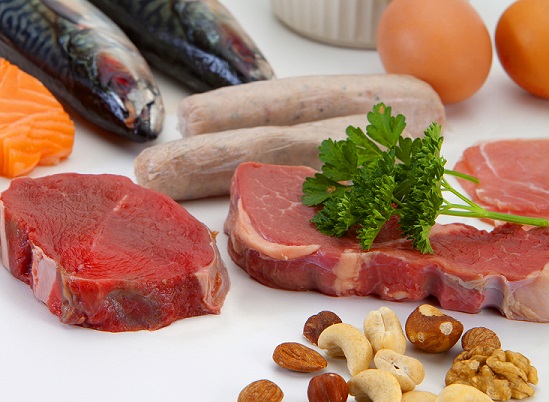Some individuals such as weight lifters and body builders embrace protein diets that are high according to the theory that muscle consists of protein, which high protein intake will lead to greater muscularity.
A high protein diet is usually recommended nutritionists and by bodybuilders to help efforts to build muscle and get rid of fat. It really should not be confused with low-carb diets such as the Atkins Diet, which are not calorie-restricted and which often contain considerable amounts of fat. This argument is comparable to the belief that when a small vitamin A will work for you, lots of vitamin A is better still. In fact, high doses of vitamin A are poisonous.
 High protein consumption results in high rates of uric acid in the blood that may boost the risk of gout. High protein consumption also has the potential to exacerbate ‘osteoporosis’ (chalkiness of the bones) through interference with calcium metabolism.
High protein consumption results in high rates of uric acid in the blood that may boost the risk of gout. High protein consumption also has the potential to exacerbate ‘osteoporosis’ (chalkiness of the bones) through interference with calcium metabolism.
For most healthy individuals, a high protein diet normally is not dangerous, particularly when followed for a brief time. By making you feel fuller, such diets may help with weight loss.
Several health problems may result if your high-protein diet is followed for an extended time. If you need to follow a high-protein diet, select your protein wisely. Great choices include pork, legumes, nuts, fish, skinless poultry, lean beef, soy protein and lowfat dairy products. Avoid processed meats.
Cut processed carbs out of your diet plan, and select carbs that are high in nutrient and fiber -dense, such as vegetables and whole grains and fruit.
It’s always a good idea to talk with your doctor before starting a high protein or weight loss diet. For those who have kidney disease, diabetes or another chronic health condition and that is especially significant in this event.
Finally, remember that weight loss may be temporary, particularly if you return to your own previous way of eating. The best and healthy eating plan is the one you could stick to long term.